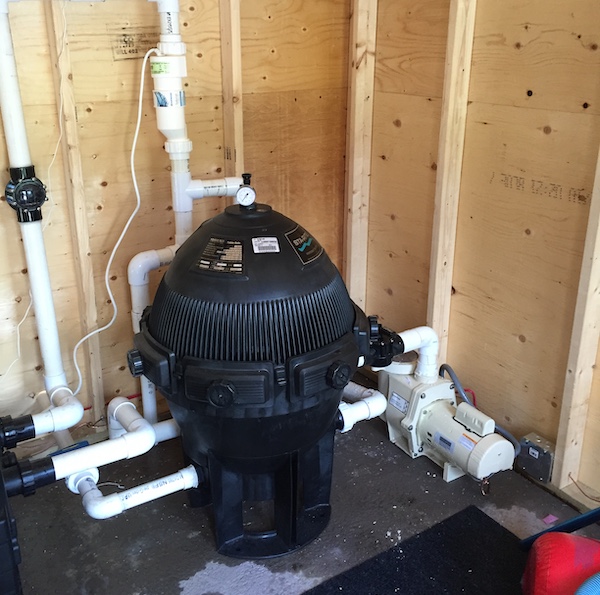Salt Water Systems

Salt water pool systems, also known as salt chlorination systems, have gained popularity over the years as an alternative to traditional chlorine pools. These systems use a saltwater generator to convert salt into chlorine, providing a consistent supply of sanitizer to the pool water.
How do saltwater pool systems work?
Saltwater pool systems use an electrolysis process to produce chlorine from salt. The saltwater generator contains a salt cell, which is an electrochemical device that separates sodium and chloride ions in the water. As the water flows through the cell, a low voltage DC electrical current is applied, which splits the sodium chloride into its component parts. The chlorine gas that is produced reacts with the water to create hypochlorous acid, the active ingredient that sanitizes the pool.
One of the advantages of saltwater pool systems is that they continuously produce chlorine, eliminating the need for manual addition of chlorine tablets or liquid. As a result, saltwater pools are known to have more stable and consistent chlorine levels, which can reduce the likelihood of chemical imbalances and algae growth.
Benefits of saltwater pool systems
Saltwater pool systems have several advantages over traditional chlorine pools. Here are some of the benefits:
- Reduced chlorine smell: Saltwater pools typically have a lower concentration of chlorine than traditional pools, resulting in less of the characteristic “chlorine smell.” This can make swimming more pleasant and reduce skin and eye irritation.
- Lower maintenance: With a saltwater pool system, you don’t have to worry about adding chlorine tablets or liquid to the water. The salt cell generates chlorine automatically, reducing the amount of maintenance required.
- Cost savings: While saltwater pool systems require an initial investment, they can save money in the long run by reducing the need for chlorine and other chemicals.
- Environmentally friendly: Saltwater pools are considered to be more eco-friendly than traditional pools, as they generate chlorine on site rather than relying on chemical additives.
Drawbacks of saltwater pool systems
While saltwater pool systems have many benefits, there are also some drawbacks to consider. Here are a few:
- Upfront cost: Saltwater pool systems can be more expensive to install than traditional chlorine pools, as they require a salt cell and other specialized equipment.
- Salt corrosion: Saltwater can be corrosive to certain materials, such as metal pool equipment and some types of decking. Regular maintenance and care are required to prevent damage to these items.
- pH balance: While saltwater pools are known for their consistent chlorine levels, the PH must still be balanced.
